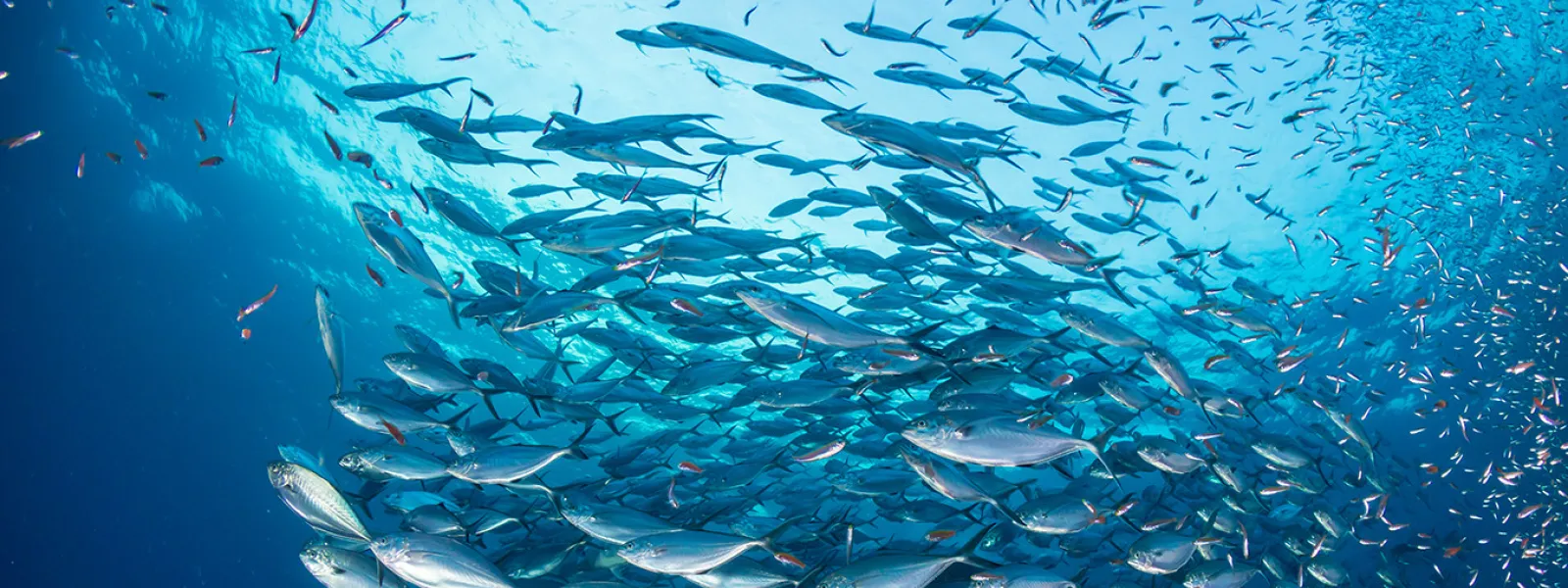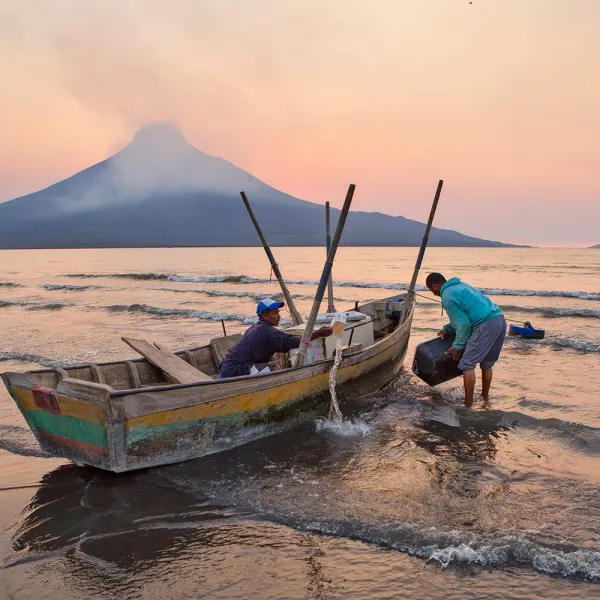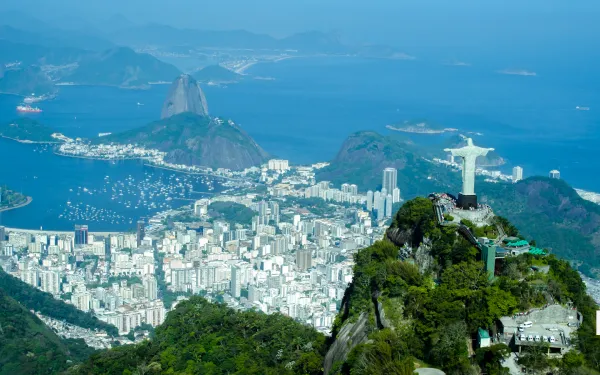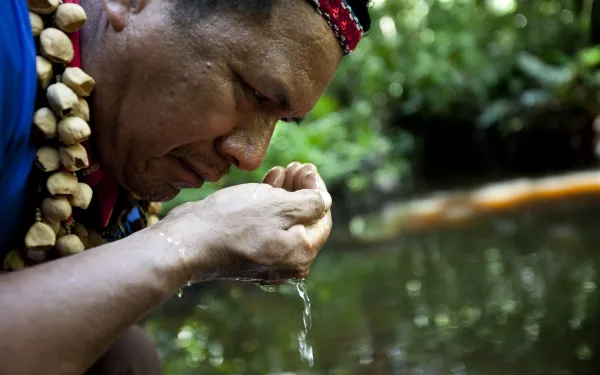
Project
ShutterstockTowards an end to subsidies that promote overfishing
Overfishing is one of the main problems for the health of our ocean. And the provision of negative subsidies to the fishing sector is one of the fundamental causes of overfishing.
Fishing subsidies are financial contributions, direct or indirect, that public entities grant to the industry.
Depending on their impacts, they can be beneficial when they promote the growth of fish stocks through conservation and fishery resource management tools. And they are considered negative or detrimental when they promote overfishing with support for, for example, increasing the catch capacity of a fishing fleet.
It is estimated that every year, governments spend approximately 22 billion dollars in negative subsidies to compensate costs for fuel, fishing gear and vessel improvements, among others.
Recent data show that, as a result of this support, 63% of fish stocks worldwide must be rebuilt and 34% are fished at "biologically unsustainable" levels.
Although negotiations on fisheries subsidies, within the framework of the World Trade Organization, officially began in 2001, it was not until the 2017 WTO Ministerial Conference that countries committed to taking action to reach an agreement.
This finally happened in June 2022, when member countries of the World Trade Organization reached, after more than two decades, a binding agreement to curb some harmful fisheries subsidies. It represents a fundamental step toward achieving the effective management of our fisheries resources, as well as toward ensuring global food security and the livelihoods of coastal communities.
The agreement reached at the 12th WTO Ministerial Conference provides for the creation of a global framework to reduce subsidies for illegal, unreported and unregulated fishing; subsidies for fishing overexploited stocks; and subsidies for vessels fishing on the unregulated high seas. It also includes measures aimed at greater transparency and accountability in the way governments support their fisheries sector.
The countries agreed to continue negotiating rules to curb other harmful subsidies, such as those that promote fishing in other countries' waters, overfishing and the overcapacity of a fleet to catch more fish than is sustainable.
If we want to have abundant and healthy fishery resources, it is time to change the way we have conceived fishing until now. We must focus our efforts on creating models of fishery use that allow for long-term conservation.
Partners:

The Olympics and the Record We Mustn't Break
By Florencia Ortúzar Greene, AIDA attorney The 2016 Río Olympics have come to an end. Over the last few weeks, the world has once again borne witness to the greatest achievements of the human body, to the forging of new world records. But, amid high levels of air and water pollution, the thousands of competitors that met in Brazil affirmed that one record must not be broken: 1.5 degrees Celsius. The Earth has been warming steadily in recent years, causing the melting of permafrost, rising oceans, increasingly dangerous storms and floods, and more intense and frequent droughts. Exceeding a global temperature increase of 1.5 °C would trigger a global catastrophe with unknown consequences. The opening message The Olympics put the issue of climate change on the table once again. Athletes from around the world called on us all to do something about it. During the opening ceremony on August 5, images of clouds of pollution filled Maracaná Stadium in Río de Janeiro. Alarming projections showed cities and regions of the world being flooded. The peace symbol, altered to resemble a tree, was projected on the ground while a voice warned that our planet’s ice caps are melting quickly. Athletes from around the world joined in a campaign to ask the world not to break the record of 1.5 degrees, implying that the union of all nations is necessary to control global warming. Each Olympian received a tree seed, which will grow into the Athlete’s Forest, cementing their legacy in Río’s Deodoro Olympic Park. Bad air and water quality In a report on water quality in Río, the World Health Organization (WHO) made recommendations to athletes competing in aquatic events. The organization told them to cover cuts and scrapes with waterproof bandages; to avoid ingesting the water; to wash as soon as possible after exposure; to stay in it as briefly as possible; and to avoid contact with all water after it rains. Clearly, water in Río carries significant health risks. Air pollution in Río has also reached dangerous levels, authorities have warned. Promises to improve air quality before the big event were not fulfilled. According to government data, since 2008 the city’s air has contained airborne particles that cause respiratory illnesses at a concentration three times higher than annual WHO-recommended limits. Another key to the planet’s health is the Amazon rainforest, of which Brazil is the principle guardian. The Amazon stores huge amounts of carbon, taking up some of what we release into the atmosphere. But this natural treasure is at risk. According to the World Wildlife Fund, over the last several years the Amazon has lost at least 17 percent of its vegetation, and deforestation has released large amounts of carbon into the atmosphere. The protection of this treasure is a responsibility humanity is failing to live up to. The fight we must win This month, nearly 11 thousand competitors from all around the world united in the world’s most important athletic competition. It was a unique occasion to reflect on the urgent challenges facing humanity. AIDA helps the nations of Latin America tackle these challenges. We work to improve air quality, and mitigate short-lived climate pollutants, which remain in the air for a relatively short time, yet generate extreme changes in climate, degrade air quality, and damage crop yields. We believe the fight against climate change is the most critical of all fights. To truly achieve victory, we must ensure we don’t break the 1.5 °C record. Our ability to win it requires us all to work as one global team.
Read more
Brazil & The Olympics: Signs of Danger, Signs of Hope
By Rodrigo da Costa Sales, AIDA attorney As the Brazilian flag was raised at the Rio Olympics to the soft sounds of acoustic guitar, the familiar words of my country’s national anthem struck me: Giant by thine own nature, Thou art beautiful, thou art strong, an intrepid colossus, And thy future mirrors that greatness. For centuries, it’s been easy, a point of pride, to celebrate the natural bounty of our landscape, from the mighty Amazon basin to the thousands of miles of pristine coastline. What’s proved most difficult is defending it. Last year Brazil was the world’s most dangerous country for environmental defenders. At least 50 of us were killed; so far this year, 23 have been assassinated. The Amazon, where I was born and spent my childhood, is the epicenter of these crimes. Plantations and ranches have been built on land where homes once stood. Indigenous and Afro-Brazilian communities, guardians of the natural world, have been evicted from lands passed down through the generations. It’s clear that economics and development have been prioritized above public health and wellbeing. Increasingly, large dams are also becoming agents of dispossession in the Amazon. On the mighty Rio Xingu, the massive Belo Monte hydro dam displaced indigenous communities that depended on and cared for the river basin. Vast amounts of rainforest were destroyed, with disastrous impacts on wildlife. Several plant and animal species are now extinct; literally tons of fish died, likely from contamination. Altamira, the city closest to the dam, is now ranked third in Brazil for violence and inequality. Belo Monte is hardly bringing equitable and just development to Brazil. There are reasons for hope, though. A couple of things that happened last week made me believe we might see some positive changes in the near future. First, the government denied the environmental license for a Tapajós River mega-dam that would have repeated the destruction of Belo Monte, devastating the lands and culture of the Muduruku people. The second is more symbolic – the opening ceremony of the Olympic games. I was particularly moved by the focus on two issues that Brazil must make a priority in coming years: deforestation and climate change. The attention to environmental crisis was powerful. It would have been even stronger, though, if indigenous people hadn’t been portrayed only as relics of Brazil’s ancient origins. In reality, our indigenous groups are crucial players in present and future efforts to achieve sustainability. To a certain extent, hope is what the Olympics are all about. They bring the world together for a common good, and, at their best, aid in the development of a peaceful society concerned with preserving human dignity across all continents. Although I have deep personal disagreements with the execution of the Olympics in Rio, I hope Brazil takes seriously the symbolic commitment demonstrated in the opening ceremony. I hope Belo Monte is the last case of its kind. I hope human rights and environmental defenders can work safely and without fear. I hope future generations grow up in a country that really is “giant by thine own nature.” Only then will our future truly be as great as the magnificent lands we call home. Please consider making a donation to AIDA today to help us make the future great for people in Brazil and throughout Latin America.
Read more
Indigenous People of the Americas Have New Hope for Justice
By Astrid Puentes Riaño (text originally published in Animal Político) June 15 was a historic day. After 17 years of negotiations, the American Declaration on the Rights of Indigenous Peoples was approved. That’s cause for celebration. The Declaration brings advances on many fronts. It means States must commit to respecting the rights of indigenous peoples, including their rights to land, territory, and a healthy environment. It means respecting sustainable development. It recognizes that violence against indigenous women “prevents and nullifies the enjoyment of human rights and fundamental freedoms.” And it reinforces the rights of indigenous peoples to participation; to prior consultation; and to free, prior, and informed consent – particularly when they’re faced with harm to their territories. The need for effective justice As the Organization of American States was approving the Declaration, activists held a Global Day of Action to call for justice for Berta Cáceres, the Honduran indigenous rights defender assassinated on March 3. These simultaneous events demonstrate the lack of effective justice in the region. Latin America yearns for justice, particularly with regard to human rights violations caused by extractive, energy, tourism, and infrastructure projects. The events also highlight the urgent need to put declarations and international obligations into practice. Berta’s death was foreshadowed. The Inter-American Commission on Human Rights asked the Honduran government to take precautionary measures to protect her life, which the government did not do. Two days after her death, the Commission also requested protective measures for the organization she led, the Civic Council of Popular and Indigenous Organizations of Honduras (COPINH). Just days later, however, Nelson García, another of the organization’s members, was assassinated. The primary demand on the Global Day of Action was to create a commission of independent experts to investigate the murders and to help uncover the truth. The assassinations of Berta and Nelson are not exceptions. More than 100 people dedicated to protecting their lands, forests, and rivers have been murdered in Honduras since 2010. And it’s not only there. Brazil, Colombia, Nicaragua, and Peru are four of the five most violent countries in the world for environmental defenders (alongside the Philippines). 2015 has been widely recognized as “the worst year on record” for those who defend the Earth. Towards real development Berta dedicated her life to defending rivers. At the time of her death, she was working to save her people’s territory from being flooded by the Agua Zarca Dam on the Gualquarque River. Indigenous communities there have taken stands against more than 50 extractive and energy projects affecting their land, the majority of which violate national and international law. Her case has thrust into the spotlight the realities of development in Latin America. Although governments—with the help of international financial institutions, national banks, and foreign investors—promote extractive, energy, tourism, and infrastructure projects as essential to development and poverty alleviation, the reality is quite different. Systematically, these projects are built in violation of laws and without adequate planning or evaluation of impacts on the environment and human rights. Sustainable alternatives are rarely evaluated at all. In fact, many of the projects pushed through in Latin America would not be viable in developed countries, where better technologies and safeguards are the norm. Special Rapporteurs to the United Nations have been calling attention to this issue for years. The Inter-American Commission on Human Rights also recognized it in a recent report on extractive industries and their impacts on tribal and indigenous peoples. Unfortunately, the Commission is undergoing an unprecedented financial crisis because States aren’t making sufficient contributions. Some have delayed or withdrawn funding because of conflicts over the Commission’s rulings on extractive and energy projects in their territories. The clearest example can be found in Brazil, which reacted to the Commission’s call to suspend Belo Monte Dam construction by withdrawing its ambassador, initiating a thorough review of the Commission, and freezing financial contributions. Brazil has yet to re-establish a regular contribution to the body. Hope and opportunity For all these reasons, approval of the American Declaration on the Rights of Indigenous Peoples is encouraging news. It’s essential that the rights and obligations it contains be upheld immediately. Starting with Berta’s case, States must demonstrate their seriousness. They must show, through action, that they recognize the problems facing the region; that they’re reaching for truth and justice; and that they favor real development to uplift their people. Latin America has a historic opportunity. Governments can finally join the 21st Century by respecting the rule of law, practicing what they preach, and promoting development that cares for our natural resources and those who most intimately depend on them.
Read more